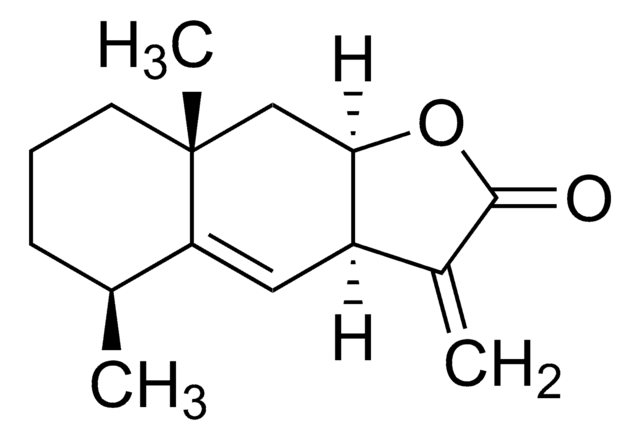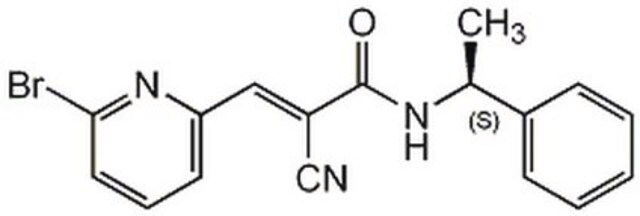R2156
Relaxin-1 human
recombinant, expressed in E. coli, >95% (SDS-PAGE), lyophilized powder
Synonym(s):
RLN1, RLXH1, Relaxin 1
Sign Into View Organizational & Contract Pricing
All Photos(1)
About This Item
Recommended Products
biological source
human
Quality Level
recombinant
expressed in E. coli
Assay
>95% (SDS-PAGE)
form
lyophilized powder
mol wt
(Contains two disulfide-linked subunits: A chain ~2.8 kDa B chain ~3.3 kDa)
technique(s)
cell culture | mammalian: suitable
suitability
endotoxin tested
UniProt accession no.
storage temp.
−20°C
Gene Information
human ... RLN1(6013)
General description
Cell signaling hormone that is prominent in the prostate, and belongs to the insulin superfamily
Biochem/physiol Actions
Relaxin 1 may function in regulating blood pressure, controlling heart rate, and releasing oxytocin and vasopressin
Relaxin has been shown to have antifibrotic effects in renal fibroblasts through mechanisms that increase collagenase activity and via TGF-β signaling.
Physical form
Lyophilized powder containing BSA
Reconstitution
In Phosphate buffered saline solution containing at least 0.1% serum albumin. The concentration should be ≥10 μg/mL
Storage Class Code
11 - Combustible Solids
WGK
WGK 3
Flash Point(F)
Not applicable
Flash Point(C)
Not applicable
Choose from one of the most recent versions:
Already Own This Product?
Find documentation for the products that you have recently purchased in the Document Library.
Rosemary Masterson et al.
Nephrology, dialysis, transplantation : official publication of the European Dialysis and Transplant Association - European Renal Association, 19(3), 544-552 (2004-02-10)
Renal fibroblasts are important effector cells in tubulointerstitial fibrosis, with experimental antifibrotic strategies focusing on the functional down-regulation of these cells. Several experimental models of fibrosis have provided evidence for the effectiveness of the polypeptide hormone relaxin as a potential
Our team of scientists has experience in all areas of research including Life Science, Material Science, Chemical Synthesis, Chromatography, Analytical and many others.
Contact Technical Service







